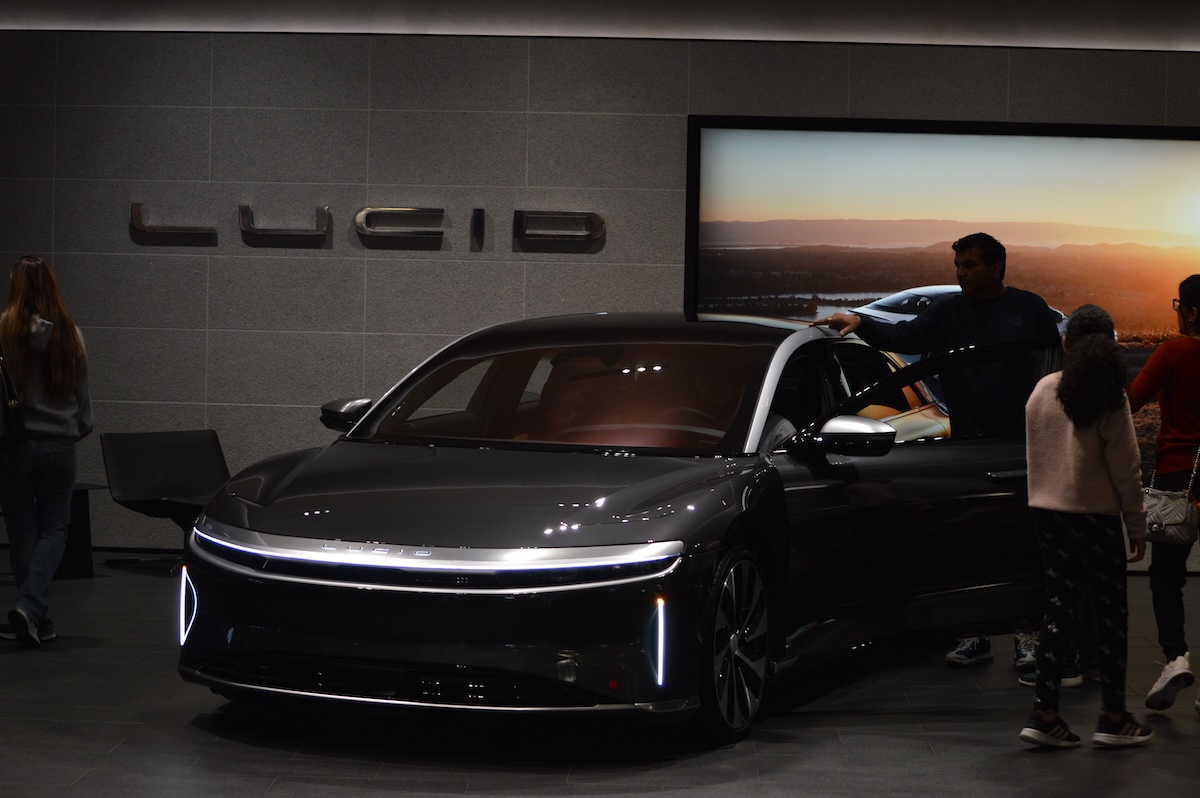
Back when Elon Musk was causing significant brand damage for Tesla (TSLA) earlier this year through his association with the Trump administration, it created an opening for other companies to try and poach some of the market share away from the leader in EV sales.
Lucid (LCID) interim CEO Marc Winterhoff told Fox Business in April that the company was seeing a “dramatic uptick” in former Tesla owners exploring the brand.
The company has now given former Tesla owners another reason to consider its vehicles: Lucid recently set a Guinness World Record for the longest drive by an electric car on a single charge.
The Lucid Grand Touring vehicle traveled 1,205 kilometers (about 749 miles) without charging.
It traveled between St. Moritz, Switzerland and Munich, Germany, a journey that included alpine roads, highways, and secondary roads.
It beat the previous record of 1,045 kilometers – set just last month by a Mercedes-Benz EQS 450+ – by 160 kilometers.
"This range record represents a significant milestone – it's yet another clear demonstration of the technological edge that defines Lucid," Eric Bach, senior vice president of product and chief engineer at Lucid, said in a statement.
"Our Lucid products combine world class vehicle efficiency with the most advanced drive units, ultra-high voltage architecture, and battery management technology available today, which lets a Lucid travel further with less energy than any other vehicles."
Tariffs create more headwinds
Cantor Fitzgerald analysts recognized this achievement in a new client note, saying that “Lucid vehicles are able to provide higher battery efficiency, longer battery range, better performance, and faster charging (relative to other EVs).”
But the firm maintained its neutral rating on the company. The problem is that Lucid has simply not yet sold enough vehicles for Cantor Fitzgerald to get bullish on its stock.
The company noted that Lucid had pre-announced that it had delivered 3,309 vehicles in Q2, below the Cantor’s estimate/Visible Alpha consensus of 3,791/3,611 vehicles. Lucid also pre-announced that it produced 3,863 vehicles in Q2, below the Cantor Fitzgerald/Visible Alpha consensus of 4,000/4,305 vehicles.
Cantor Fitzgerald analysts said they are maintaining their “neutral” rating on Lucid shares because of “persistent high negative gross margin, additional capital needs, a new management team that remains unproven, worsening macro conditions, and tariff uncertainty.”
In fact, while Lucid has doubled down on its U.S.-based supply chain to try and insulate itself from Trump’s tariffs – it might not actually be working.
Winterhoff told Bloomberg Television on Monday that even American consumers are going to have to pay higher prices for Lucid’s vehicles because of Trump’s trade policies.
“For the American consumers, vehicles are going to be more expensive under the tariff regime. There’s no other way around it,” Winterhoff said. “There’s a reason the supply chain is so global.”
Nonetheless, Benchmark analysts have maintained a “buy” rating on Lucid, noting that the company should benefit from the release of a midsize vehicle – with start of production (SOP) expected for next year.
“While we do not expect LCID to reach gross profitability before 2027, requiring sustained quarterly deliveries above 12,000 units, we believe the upcoming Midsize platform, with SOP targeted for late 2026, will support meaningful volume growth beyond current levels,” Benchmark wrote.
Lucid’s stock is down 24.8% YTD.
Your email address will not be published. Required fields are markedmarked